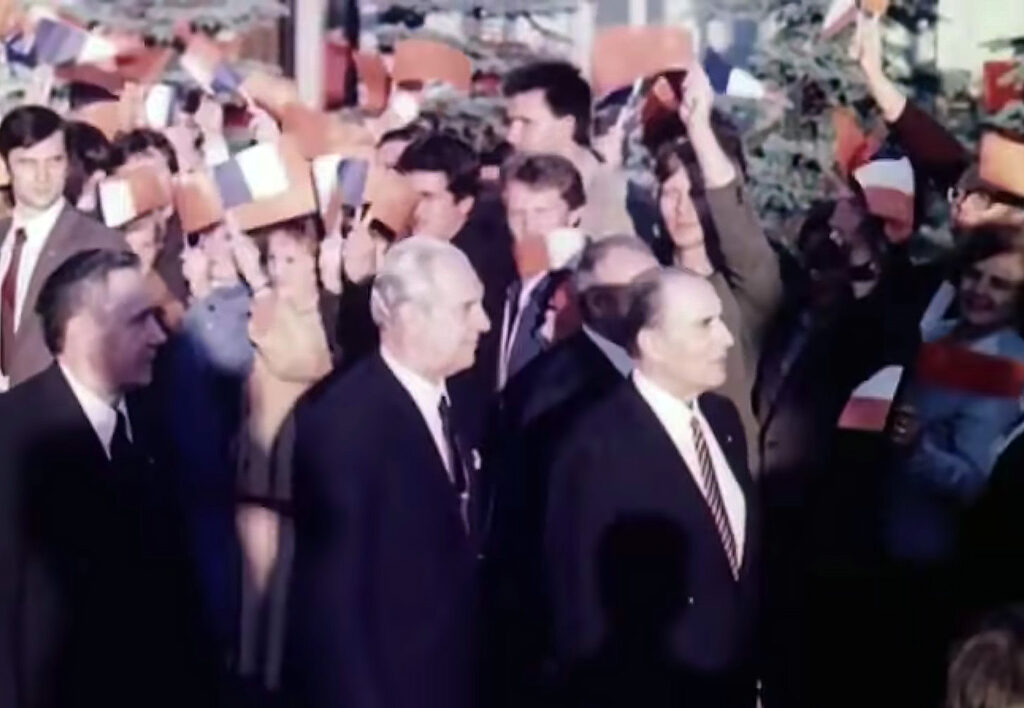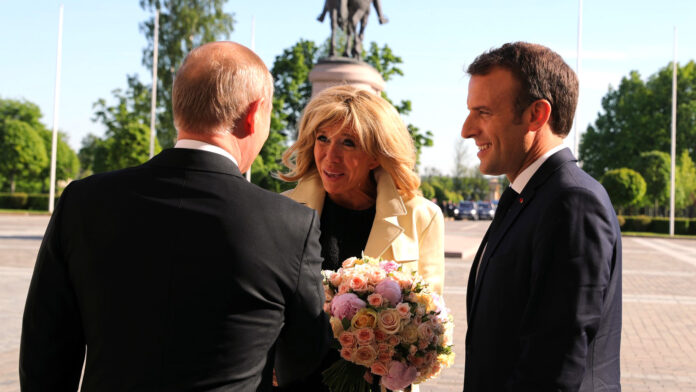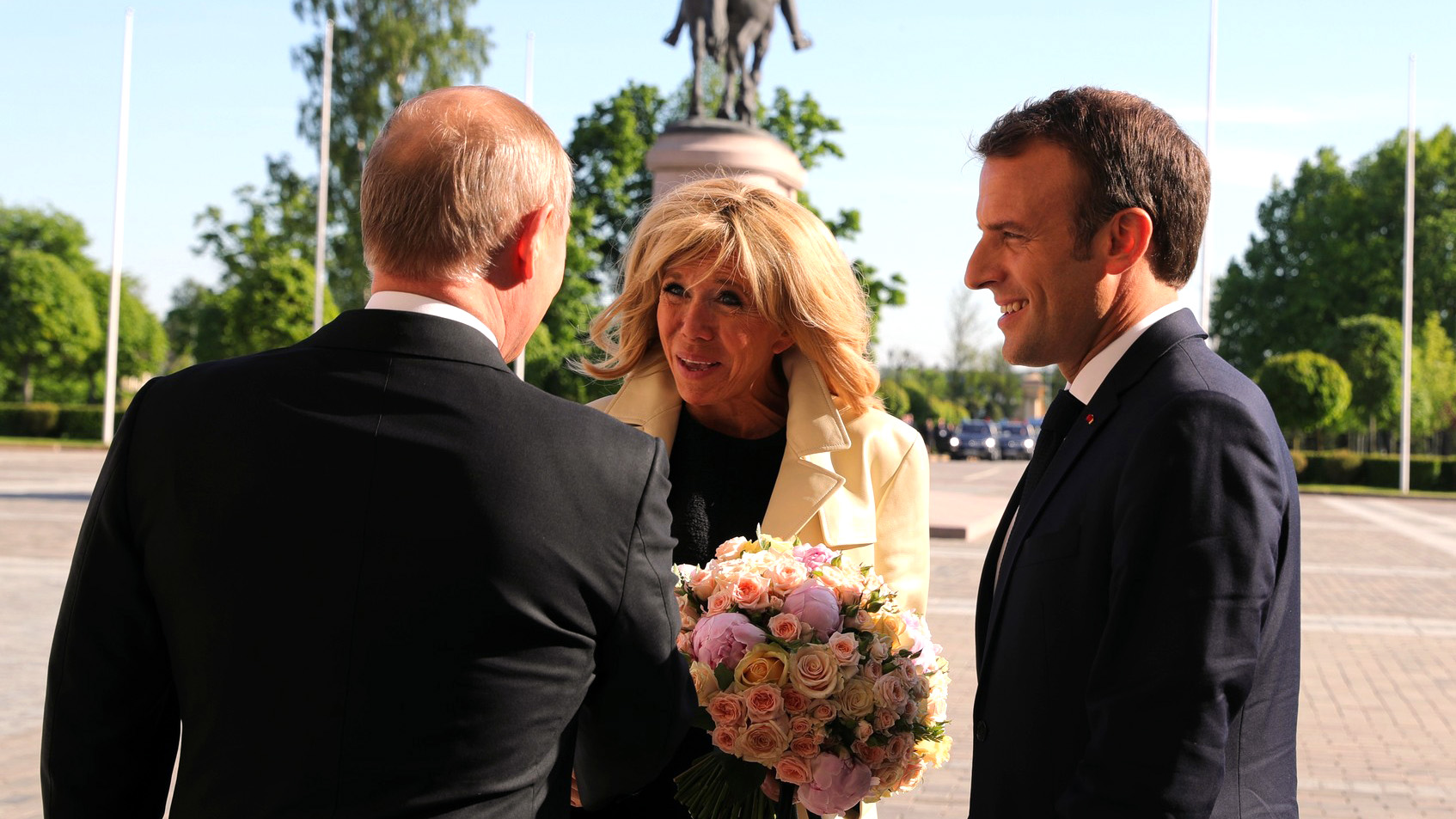Faced with the perilous situation that the West’s unanimous condemnation of the war in Ukraine represents, Russia has launched a new “special operation”, this time inside Western countries. It has mobilized both its friendly media and its networks of agents of influence within the decision-makers.
A few days ago, the Western countries, finally united, seemed to be vying to help Ukraine, offering arms and unlimited assistance. In Ukraine, the Russian offensive has become bogged down, and it was clear that soon the Russian numerical superiority would be counterbalanced by the delivery of new weapons by the West, and that Ukraine could even hope for a counter-offensive, to liberate territories in the process of annexation by Russia.
Zelenski’s advisor Oleksiy Arestovich was full of optimism: “Tectonic changes are taking place. […] We are witnessing the awakening of the West. […]To be honest, before this conflict, I had already mourned the West. I didn’t think the West would be able to express anything other than its “deep concern” and give us some alms. However, the West woke up: its death did not take place, I can stop mourning. We can see the West shaking itself free of all the cumbersome luggage accumulated during decades of peace.”
Faced with this perilous situation, Russia launched a new “special operation”, this time inside Western countries. The Kremlin mobilized its friendly media and networks of agents of influence among the decision-makers. Russian leaders believe that time is working against them, and are now giving priority to obtaining recognition by the West and Ukrainians of its conquests in Ukraine. Andrey Kortunov, president of the Russian Council on International Affairs, writes: “At a time when both sides are coming to the conclusion that they can do more at the negotiating table than on the battlefield, the active participation of third parties in mediation can play a positive role.”
The goals of this operation are obvious: 1) to break the united front of the Europeans and Americans and 2) to torpedo arms deliveries to Ukraine. Let us first look at the main themes of the media offensive. In Europe, Russia-friendly media hint that we are in the presence of an “American war” “that is not ours”. For the United States, Ukraine is a battleground like any other; for Russia, control of Ukraine is of vital importance. The United States may drag us into a third world war. “As for social networks, the idea is spreading that behind the support for the Ukrainians are the cynical designs of the United States to do anything to keep its defense industry going. In other words, we Europeans would be the mugs in a new American scheme,” notes Laure Mandeville, who perceptively analyzes the ramifications of this brainwashing in France. This line of propaganda relies on the provincialism of Europeans, encouraging them to forget that the stakes of the Russian-Ukrainian war are far more serious for them than for the United States, because the Kremlin makes no secret of the fact that Ukraine is only a springboard to the rest of Europe.
The second theme, launched simultaneously in the United States and in Europe, is that the risk of escalation, particularly nuclear, must be taken into account, that the conflict must be brought to an end by giving Putin a “way out”. In other words, forcing Ukraine to ratify new Russian annexations of its territory. Can one imagine that in March 1945 someone had recommended leaving Alsace-Lorraine to Hitler to avoid making him “lose face”?

After preparations by the media artillery, the Kremlin launched its political offensive. Russia has undertaken to put pressure on the weak links in the West’s coalition, to resurrect the disastrous “Normandy format” that led to the Minsk 1 and 2 agreements. The idea of a Minsk 3 is the same as before: mobilize the French and the Germans to force Ukraine to accept the Russian diktat, i.e., to recognize the amputation of its territory and to mortgage its sovereignty. Once again, it is France that has been given the role of the purveyor of Russian influence in Europe.
French President Emmanuel Macron answered the call. During a press conference on May 9 at the European Parliament in Strasbourg, he declared that peace would have to be built without “humiliating” Russia : “We will have a peace to build tomorrow, let us never forget it. We will have to do it with Ukraine and Russia around the table […] But it will not be done in negation, nor in exclusion of each other, nor even in humiliation“. The French president has talked enough with Putin to know that the only agreement that can be reached with him is capitulation. The concern not to humiliate Ukraine by ratifying the Russian annexation seems to preoccupy him much less than concern for sparing the aggressor.
But it only gets worse. Earlier, during a speech, he had declared: “When peace returns to European soil, we must build a new security equilibrium” without “ever giving in to the temptation of humiliation or to the spirit of revenge”. In other words, it is necessary to set aside the experience that was acquired at a very high price in recent months to launch a reset. Not only to resume “business as usual” with Russia, but also to grant it a say in European security, because this is how we must understand “the new security equilibrium”. Let’s bet that President Macron will soon call, as he did in 2018, for establishing a “relationship of trust” with Russia on the basis of “shared values”! In Ukraine, the danger has been sensed. Zelenski speaks diplomatically: “We should not look for an escape hatch for Russia, and Macron does it in vain. I think he speaks from experience: until the Russian Federation itself wants and understands that it needs it, it will not look for any way out.” The Ukrainian president emphasized that it was not appropriate to offer concessions at the expense of Ukrainian sovereignty in order to save face for Putin.
Unfortunately, the catalog of gestures towards Moscow by the French president did not end there. He had to announce that Ukraine’s admission to the EU would be postponed indefinitely! And this just at the moment when Moscow had announced its reversal on this issue. While in March Russia had appeared to accept that a truncated Ukraine be admitted to the EU as a consolation prize, it had just made known that it was now opposed because the EU was too close to NATO! One can well imagine the effect of these words in Kyiv. The Ukrainian blogger Vadim Zaidman expresses it very well: “Macron’s complacent attitude […], the refusal to retaliate against the aggressor for committed crimes against humanity, for the genocide of the Ukrainian people, and, moreover, the desire to build European security with Russia after the war — all this is astounding. Furthermore, to take such initiatives now, in the middle of the war, is to strike a blow below the belt to battling Ukrainians covered in blood, a blow all the more ignoble because Ukraine is fighting alone for all, for its freedoms and yours, including those of France.”
The second part of the Russian offensive, the sabotage of arms deliveries to Ukraine, has had some success. Germany has delayed the transfer of Gepard self-propelled guns and of all offensive weapons to Ukraine. Senator Rand Paul has blocked the U.S. Senate’s fast-track passage of legislation to allocate additional aid to Ukraine worth about $40 billion. He has already made a name for himself for his stances that have echoed Putin’s argument to justify Russian aggression against Ukraine. According to Senator Paul, American support for Ukraine was the cause of Russian intervention. These delays are invaluable to Moscow as the Russian army seeks to advance as far as possible into Ukraine, despite the heroic resistance of Ukrainian forces.
The perfect orchestration of this “special operation” against the West, and the change of tactics of the Russian army in Ukraine lead us to the following conclusions. Despite the obvious weakening of Putin and the progress of his alleged disease, a firm hand holds the reins of power in Moscow. It is not, however, only Ukraine. South Ossetia has just announced a referendum to join Russia. The Chekist core of the Putin regime seems perfectly capable of assuming control should Putin need to step aside for health reasons, especially if the West’s complacency offers him a victory under the guise of “letting Putin save face” by permitting him to annex more than 40% of Ukrainian territory and thus conferring a bonus for the aggressor. Such a success would strengthen the regime and encourage the Kremlin to pursue its imperial project at the expense of Europe.
We must, instead, take into account the lessons of history. As much as military victories have been harmful for Russia, defeats have been salutary. All the great reforms of the Russian empire were triggered by military setbacks. The Russians must take the full measure of the disaster that Putinism represents for their country. For this to happen, the West must remain firm and united, maintain its sanctions, and recognize the stakes in a Ukraine victory. It is true that a remedy must be found for Russian humiliation, but for that we must correctly diagnose its causes.
This sense of humiliation arises not because of the so-called offenses inflicted on Russia by the West, but by the experiences of Russians in school, in the army, and in everyday life. Russians feel treated like slaves by the authorities who dominate them and in revenge seek to humiliate in turn those whom they perceive as weaker. The best way to end this vicious circle is to help the Russians dismantle the autocratic regime that keeps them in servitude and in stupor and build the rule of law. It is not to pander to the Kremlin’s ego. Russians should be encouraged to extricate themselves from Putinism instead of trying to preserve this regime at all costs, to the detriment of neighbors and of all of Europe. For several years, Putin has tried to chain his successors to his policy of confrontation with the West. The annexation of Crimea was already an attempt to reach this aim: to create a situation of no return that would block the road to normalization of relations with democracies. Further amputation of Ukraine will perpetuate the Cold War between Russia and the West; and this is probably the main objective of the aging dictator. But is this really what we want?
The Russian offensive in the West seems to have had only limited success so far. On May 14, the G7 declared that it will never “recognize” the borders that Russia wants to impose by force on Ukraine. American and European aid continues to flow into Ukraine. But the fault lines in the “collective West” are emerging once again. France has revived its ill-fated motto of the 1990s, “do not humiliate Russia”, which has resulted in a more than 20-year policy of Kremlin appeasement. We see the result today. Germany hesitates, wavering under the weight of a pro-Russian lobby. In the new Europe that is taking shape before our eyes, France and Germany will find themselves isolated and suspect because of their Kremlinophile leanings, as the Eurovision vote already shows. France above all, blinded by its anti-American obsession, risks not seeing the upheaval that is taking place, just as in Gorbachev’s time when it wanted to preserve the USSR1: “American hegemonism: another reason, in 1985, to find, in Eastern Europe, a counterweight, a strong and balancing partner”2, wrote Hubert Védrine.
After meeting the French president on November 25, 1988, Gorbachev made an apt assessment before the Politburo: “Mitterrand is not trying to distance us from West Germany or Italy. All this gives us more room for maneuver on the European continent. He sees that the Americans are trying to mess with us in Eastern Europe. He is telling us in substance: let’s unite Europe together. You can feel that he has a grudge against the United States. The French collaborate closely with Kohl, but French chauvinism is still there.3” On September 10, 1989, Mitterrand, observing the signs of disintegration in the communist bloc, began to panic : “How long will Gorbachev tolerate this? The Warsaw Pact is in disarray. The gap is widening between what Gorbachev says and what he does. One would think that his power is much less than what he says”4. Let’s not forget that on December 21, 1989, France signed an economic cooperation agreement with the GDR… for five years! This demonstrates how biases rooted in French diplomacy have led to abysmal blindness.
We cite these examples because recent initiatives of President Macron appear to reveal the same blindness and for the same reasons. Russocentrism prevents him from seeing that Central and Eastern Europe are in the process of recomposing themselves and becoming a dynamic group that will count in the EU. Ukraine will have its place in it. Its admission to the EU will solve the problem of European security more surely than all the pacts in the world with Russia. Indeed, Ukraine will provide the European Union with an army capable of fighting and inspiring respect. If the European countries agree at the same time to a future effort of armament, the EU, supported by an Atlantic pillar (the United States and NATO), will finally become a great power and able to cope with dictators. The Russians have understood this: hence their veto of Ukraine’s integration into the EU. The center of gravity is shifting in Europe. An independent and strong Ukraine turned towards the West will strengthen Central and Eastern Europe and, who knows, will one day persuade the Russians that freedom for oneself is better than domination over others.
She has a degree in classical literature and spent 4 years in the USSR from 1973 to 1978. She is an agrégée in Russian and teaches Soviet history and international relations at Paris Sorbonne.




